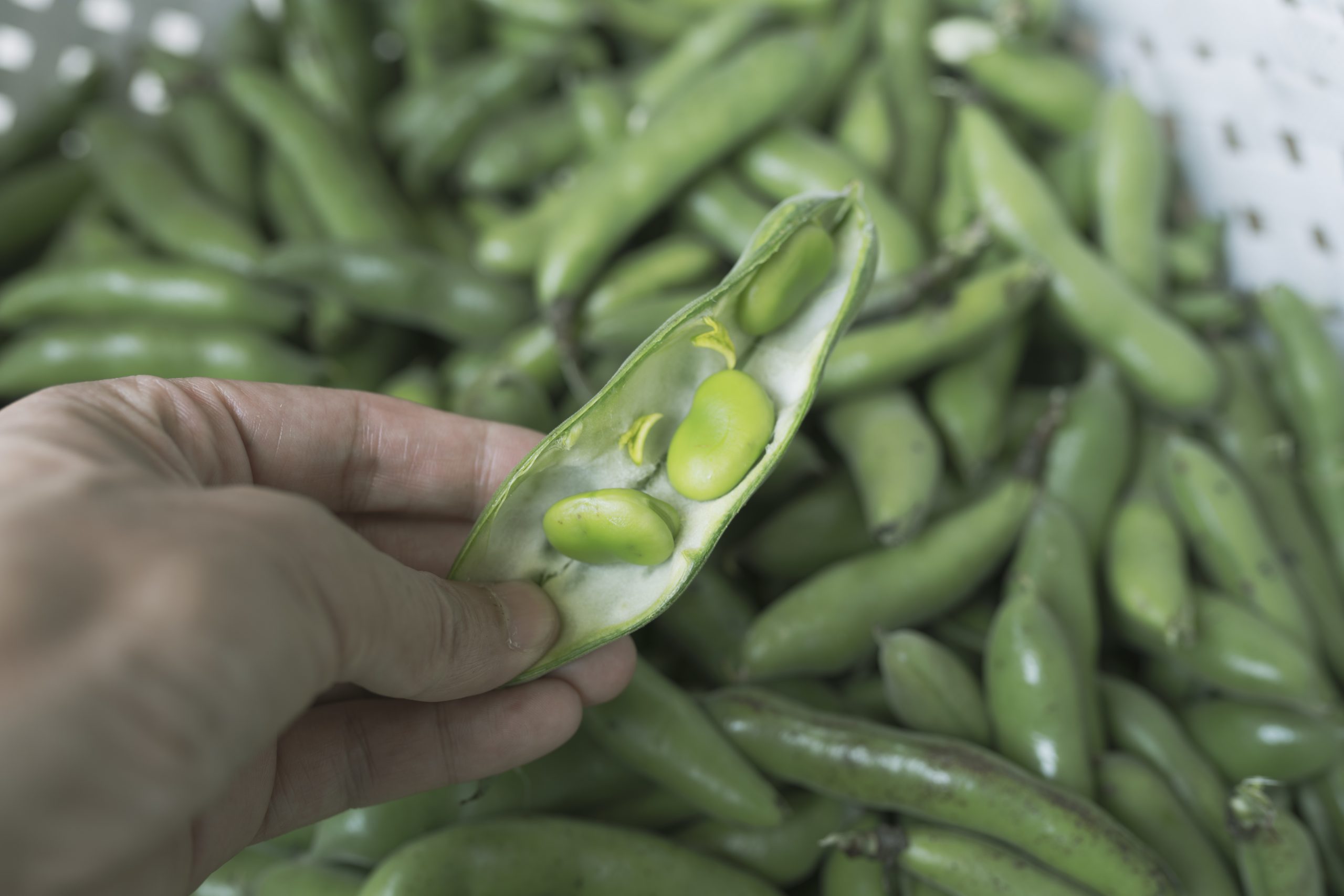“You know, faba beans are a highly promising basis for alternatives to meat and new vegetarian foods for the Nordic region and northern Europe in general. There is just something about the taste and odour we need to work on,” says Alan H. Schulman, Professor at LUKE Natural Resources Institute Finland and the Institute of Biotechnology at the University of Helsinki.
Faba beans can be grown locally and are thus a better option environmentally than importing soybeans, the cultivation of which threatens tropical rainforests and savannahs. The catch, however, is that consumers are put off by the beany flavour generated by the processing used to make food products from faba beans – a problem caused by enzymes in the beans oxidating the oil in the beans.
A better bean
To tackle this issue, the Novo Nordisk Foundation recently awarded a 3-year project grant of DKK 3.9 million to Alan H. Schulman and his collaborators from Finland and Denmark.
“We aim to identify the specific genes responsible and then knock out their activity. Simply put, we hope to make a better bean that people will want to eat in various forms,” Alan H. Schulman explains.
The beany taste and odour may be acceptable for cooked beans, but not when the beans are used as the basis for an alternative to meat or milk. Schulman thus aims to find new varieties of faba beans that will provide a Nordic plant protein source for increasingly popular new foods.
Towards plant-based diets
Turning people on to faba bean will contribute to the green transition by promoting the sustainability of food systems. Meeting the growing demand for food while preserving biodiversity and reducing greenhouse-gas emissions from agriculture requires reducing the consumption of animal-based foods and increasing the consumption of plant-based food.
“Food production causes one quarter of the climate-changing greenhouse-gas emissions, with the largest share coming from animal-based production. Legume-based plant protein grown for Europe in Europe confers many benefits, and faba bean is the legume best suited to the Nordic countries. We see great potential in faba beans, but this can only work if people want to eat it,” Alan H. Schulman says.
Alan H. Schulman holds a PhD in Cell and Developmental Biology from Yale University, where his dissertation was on plant haemoglobin. He has spent his entire working life in Finland, where he is now witnessing the trend towards more sustainable eating habits that positive results from his project could accelerate:
“Here in Finland, new alternatives for meat and milk products are more and more abundant in the supermarkets, alongside our sourdough rye bread and other traditional foods. The traditional whole-grain foods, berry products and the new plant protein sources represent a very marketable package for Europe and beyond,” he says.
13 projects, DKK 39m
Altogether, the Novo Nordisk Foundation has awarded four postdoctoral fellowship grants and nine project grants within the Plant Science, Agriculture and Food Biotechnology programme. A total of more than DKK 39 million has been awarded to the 13 projects.
These projects will contribute to solving challenges related to sustainable agriculture and food production. The full list of projects can be found here:
https://novonordiskfonden.dk/da/bevillingslister/?c=281 (postdoctoral fellowship grants)
https://novonordiskfonden.dk/da/bevillingslister/?c=279 (project grants)
Each year, the programme awards DKK 10 million for postdoctoral fellowships and DKK 30 million for collaborative project grants. The next call for applications is expected to open in June 2021.
The programme also supports the continued development and consolidation of excellent research leaders within the field by awarding DKK 30 million to Emerging Investigators and DKK 30 million to Ascending Investigators. The latest application round has just had a deadline.
Further information
Anders Rosendahl, Senior Communications Partner, +45 7730 1532, [email protected]








